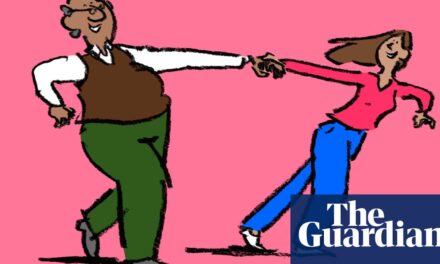It was November 1960, and my seventh-grade mind was wrapped around the Shirelles’ monumental hit, “Will You Love Me Tomorrow.” The song’s lyrical precision penetrated my teenage-girl psyche with its longing for love — and respect. The lyrics were so fraught with social implications, especially those suggesting possible teen pregnancy, that some radio stations banned the song. But noted music historian Greil Marcus loved it so much that he once played it “eight hours straight,” which in my book makes him an honorary teenage girl.
Laura Flam and Emily Sieu Liebowitz’s “But Will You Love Me Tomorrow?” an oral history of 1960s girl groups, presents a musical world that today’s teenagers might find incomprehensible — a time without music streaming, when sharing a song with friends meant gathering around a record player or going to a concert together. But boomers will smilingly recognize and probably long for it. It was a world in which local talent shows, hops and gigs offered opportunities for young performers to be discovered and recorded. Radio airplay on transistor or car radios did the rest. It was a world where teenager Carole King, along with her boyfriend-then-husband Gerry Goffin, wrote songs, including “Will You Love Me Tomorrow,” that propelled such groups as the Shirelles, the Crystals and the Chiffons to lasting stardom.
“But Will You Love Me Tomorrow?” has an unusual and sometimes troublesome format. It consists of edited transcripts of more than 100 interviews with notable artists, such as King, Ronnie Spector, Diana Ross, Patti LaBelle, Cher and Johnny Mathis, but we also hear from their managers, producers, songwriters, various band members, DJs and family members. These shared stories foster intimacy, conflicting memories and sometimes confusion. But reader persistence pays off.
Recordheads will enjoy learning, for instance, that “Dancing in the Street,” a huge 1964 hit by Martha and the Vandellas, was originally written for Kim Weston. Or that, according to Gloria Jones of the Blossoms, Sam Cooke had a tendency to bite his bottom lip, causing much excitement among his female fans. Urban history buffs will enjoy knowing that New York’s Peppermint Lounge was “literally a hooker and sailor joint before the Twist came along,” according to Joey Dee, whose million-seller furthered the twist craze begun by Chubby Checker. Goodies like these are B-side material. Flip the record, and the A-side plays a more recognizable American tune of race and appropriation.
The majority of girl groups that had hits were Black. These included the Chantels, the Shirelles, the Crystals, the Cookies, Martha and the Vandellas, the Supremes, and the Marvelettes. The Ronettes were multiracial. The Angels and the Shangri-Las were White. Songwriters, managers, band members and producers were of various backgrounds. Carole King wrote mega hits, and so did Smokey Robinson. Both Berry Gordy and Phil Spector were masterful producers, and mean, controlling geniuses, according to the book. Only a few singers won legal battles over rights and royalties; the word “promoters” was considered synonymous with “thieves,” Louise Murray of the Hearts and the Jaynetts tells us.
When some groups from the North toured the South, they were frightened and stunned by what they saw. Martha Reeves of the Vandellas says the group was often mistaken for Freedom Riders, leading to threats, and more than once with a shotgun. The women were constantly subjected to racist talk and the indignities of segregation. While touring with Sam Cooke and Dionne Warwick, La La Brooks of the Crystals recalls confronting a White waitress who told her to “shut up” and then running in fear to a basement, where Cooke hid her. This was a town where, Brooks’s bandmate says, the group performed “on a two-sided stage. On one side, the whites sat in theater type chairs, and on the other side, the Blacks stood up in a basketball gymnasium. We were instructed not to sing to the Black audience. Sam sang one song to the Whites and the rest to Blacks. … I can’t remember exactly how he pulled it off.”
These early girl groups were taught charm and poise with militarylike rigor (Motown had its own finishing school, headed by Maxine Powell). Chaperones, and sometimes mothers and aunts, toured with the girls, but advice on how to survive on the road came from older female performers like Etta James and Laverne Baker, who toured with the nascent Shirelles and taught them how to handle money and keep their crinolines in shape. Told to keep clear of the men on the tour, the girls still witnessed some unexpected behavior. Prostitutes cavorted with men backstage, and 14-year-old Emma Pought of the Bobbettes remembers seeing a doctor board the bus to give the men shots of medicine to stave off venereal disease.
For better and worse, Flam, a writer and interior designer, and Liebowitz, author of the poetry collection “National Park,” let their subjects do most of the talking. But the lack of an editorial voice can make reading their book exhausting. There’s too much to keep straight and little context in which to do it; few dates are provided, and the multiple speakers begin to recede in relevance. The chorus of conflicting memories of who did what to whom sometimes resembles an episode of “The Real Housewives.” This squabbling can be fun, but there’s an underlying melancholy because the breakups were often precipitated by illness or death. The demise of the Ronettes is especially sad, and that story rightfully closes out the book.
In the final pages we hear from Ronnie Spector, who died shortly after the book was written. “I cried every night I was married,” she confesses about her relationship with Phil Spector. “The last year of my marriage I didn’t talk at all. Because if I said anything, he’d yell at me, so why say anything?” The girls in the Ronettes were literally her family — her older sister Estelle Bennett and their cousin Nedra Talley — and that deep connection comes through in the conversation captured here. (Estelle’s daughter, Toyin Dong, speaks on behalf of her mother, who died in 2009.) As Nedra remembered: “I only saw the three of us, all the time. We put our makeup on, we sat next to each other, we didn’t even, like, smoke individually. … We would share a cigarette — take a puff, take a puff, put it back on the ashtray. In my memory, it’s just the three of us.” That bond among women is what helped this group — and the many others featured in this comprehensive book — to rise above harsh realities and leave an indelible mark on American music.
Sibbie O’Sullivan, a former teacher in the Honors College at the University of Maryland, is the author of “My Private Lennon: Explorations From a Fan Who Never Screamed.”
But Will You Love Me Tomorrow?
An Oral History of the ’60s Girl Groups
By Laura Flam and Emily Sieu Liebowitz
Hachette. 432 pp. $31





